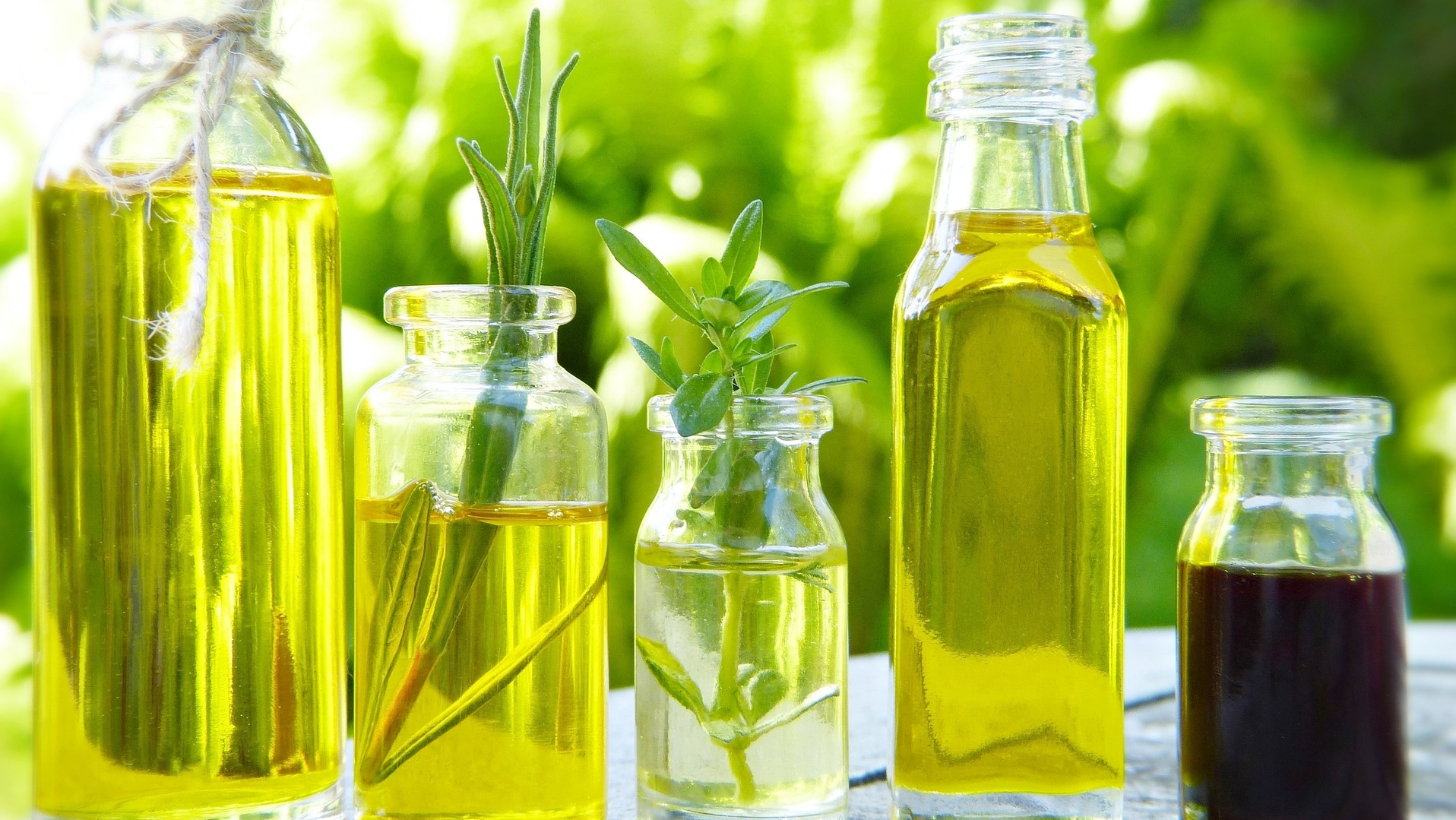About Carrier Oils Used in Aromatherapy
Aromatherapy, the practice of using essential oils for therapeutic purposes, is a widely embraced holistic approach to enhancing physical and mental well-being.
Essential oils, concentrated plant extracts, are potent and must be diluted before application. Carrier oils play a crucial role in this dilution process, serving as a medium to disperse essential oils effectively.
Let's review the world of carrier oils used in aromatherapy, exploring their characteristics, extraction methods, and the diverse array of popular options available.
Carrier oils are indispensable in aromatherapy, not only for dilution purposes but also for their therapeutic properties. Understanding their characteristics, extraction methods, and available options empowers individuals to make informed choices for a holistic and enjoyable aromatherapy experience. Remember to prioritize safety by following recommended guidelines and consulting professionals when necessary.
Understanding Carrier Oils
Technically termed "fixed" oils, carrier oils earned this moniker because they do not evaporate. Carrier oils are vegetable oils used as a base to dilute essential oils for safe application. The ideal carrier oil is light, non-sticky, and possesses minimal odor. While various substances, such as water, alcohol, creams, or lotions, can serve as carriers, oils are the preferred medium due to their versatility.
Carrier oils primarily come from nuts and seeds, though there are exceptions. For instance, coconut oil undergoes a unique extraction process from the white flesh of coconuts known as copra. On the other hand, jojoba oil, extracted from a leathery-leaved shrub, is technically a liquid wax rather than an oil.
Carrier oils don't just distribute essential oils; they can offer various health benefits. Because most carrier oils contain vitamins, minerals, and essential fatty acids, they can nourish and improve skin. Some are particularly effective in treating sensitive skin conditions like eczema and psoriasis, while others boast anti-aging properties, reducing wrinkles and scar tissue.
How is Carrier Oil Made?
The method for creating carrier oils varies, including cold pressing and hot extraction. Cold pressing involves squeezing nuts or seeds to extract the oil, which is filtered. Although some heat is generated during cold pressing, it remains within a tolerable range, preserving the oil's essential properties. This method is standard in small-scale production due to its slightly higher cost.
In contrast, hot extraction, prevalent in large-scale industrial production, uses significantly higher temperatures, reaching 200 degrees Celsius. Unfortunately, this high heat can compromise essential vitamins and fatty acids in the oil.
Both extraction methods generate a byproduct known as cake, which is further processed using solvents to extract additional oil. The resulting oil undergoes refining, deodorizing, and bleaching, introducing artificial additives. These highly refined oils are often unsuitable for aromatherapy due to the loss of essential nutrients and artificial artificial additives.
Choosing cold-pressed oils is advisable for aromatherapy, as they retain the oil's beneficial properties. Grapeseed oil, however, is an exception, as it cannot be cold-pressed and is only available as a heat-extracted oil.
Refined or Unrefined Carrier Oil?
Certain carrier oils, such as Avocado, Coconut, and Wheatgerm, come in refined and unrefined forms. The general rule of thumb is to choose unrefined or raw oil whenever possible. However, exceptions exist; for instance, unrefined raw Coconut oil sets like butter, making it impractical for specific uses. In such cases, fractionated coconut oil, a processed form that is always liquid, is a suitable alternative for aromatherapy applications.
Exploring the Unique Qualities of 15 Popular Carrier Oils
These popular carrier oils offer diverse properties, each catering to different skin types and therapeutic needs. These carrier oils serve as effective mediums for essential oils and bring unique benefits to enhance your aromatherapy experience. Let's delve into some interesting facts about each of these oils.
-
Sweet Almond Oil: Ancient Egyptians revered sweet almond oil for its cosmetic and medicinal properties. It's lightweight, absorbs quickly, and is rich in vitamins A, B, and E, making it a nourishing choice for all skin types.
-
Jojoba Oil: Jojoba oil is unique as it closely mimics the skin's natural oils. Originating from the jojoba plant in the southwestern United States, it's prized for its ability to balance oil production, making it suitable for both oily and dry skin.
-
Rosehip Oil: Harvested from the seeds of wild rose bushes, rosehip oil is a skincare powerhouse. It's renowned for its high levels of vitamin C and essential fatty acids, aiding skin regeneration and reducing the appearance of scars and fine lines.
-
Fractionated Coconut Oil: Fractionated coconut oil remains liquid at room temperature, unlike regular coconut oil. It's an excellent carrier oil for massage and skincare, as it's light, non-greasy, and has an indefinite shelf life.
-
Argan Oil: Often referred to as "liquid gold," argan oil is derived from the kernels of the argan tree in Morocco. Rich in antioxidants, vitamin E, and fatty acids, it's a luxurious oil known for its anti-aging benefits and deep hydration.
-
Grapeseed Oil: Extracted from grape seeds, this oil is a byproduct of winemaking. It's lightweight, easily absorbed, and contains polyphenols that contribute to its antioxidant and anti-inflammatory properties.
-
Avocado Oil: Avocado oil, pressed from the fruit's flesh, is a culinary delight and a skincare gem. It's intensely moisturizing and rich in vitamins A, D, and E, making it ideal for dry and mature skin.
-
Neem Oil: Hailing from the neem tree in India, neem oil has been a staple in Ayurvedic medicine for centuries. Its potent antibacterial and antifungal properties help treat various skin conditions, including acne and eczema.
-
Castor Oil: Castor oil, derived from the castor bean, has a long history of medicinal use. It's known for its intensely hydrating properties and is often used in hair treatments to promote growth and thickness.
-
Apricot Kernel Oil: Extracted from the seeds of apricots, this oil is rich in gamma-linolenic acid and vitamins A and E. It's prized for nourishing and softening the skin, making it a popular choice in aromatherapy.
-
Vitamin E Oil: While technically not an oil, vitamin E is a powerful antioxidant commonly used in skincare. It helps protect the skin from free radicals and supports skin healing, making it a popular addition to carrier oil blends.
-
Hemp Seed Oil: Hemp seed oil, cold-pressed from hemp plant seeds, is rich in omega-3 and omega-6 fatty acids. It's valued for its anti-inflammatory properties and can soothe irritated skin.
-
Macadamia Oil: Native to Australia, macadamia oil is lightweight and closely resembles the skin's natural sebum. It's known for its regenerative properties, making it beneficial for mature or damaged skin.
-
Wheatgerm Oil: Extracted from the germ of the wheat kernel, wheatgerm oil is rich in vitamin E and essential fatty acids. It's often used for its nourishing and revitalizing effects on the skin.
-
Borage Oil: Borage oil, derived from the seeds of the borage plant, is one of the richest sources of gamma-linolenic acid (GLA). It's known for its anti-inflammatory properties and is often used to soothe and moisturize the skin.
Safety Precautions in Aromatherapy
While aromatherapy can provide numerous benefits, it is essential to observe safety precautions to ensure a positive experience:
-
Patch Test: Before using a new carrier or essential oil, perform a patch test to check for allergic reactions or sensitivities.
-
Dilution Ratios: Adhere to recommended dilution ratios when combining essential and carrier oils. Overly concentrated mixtures can cause skin irritation.
-
Pregnancy and Medical Conditions: Consult with a healthcare professional before using aromatherapy, especially during pregnancy or if you have pre-existing medical conditions.
-
Sun Sensitivity: Some essential oils can increase sensitivity to sunlight. Avoid sun exposure after applying these oils to the skin.
-
Quality Matters: Choose high-quality, pure oils from reputable sources to ensure their therapeutic benefits and minimize the risk of adverse reactions.






